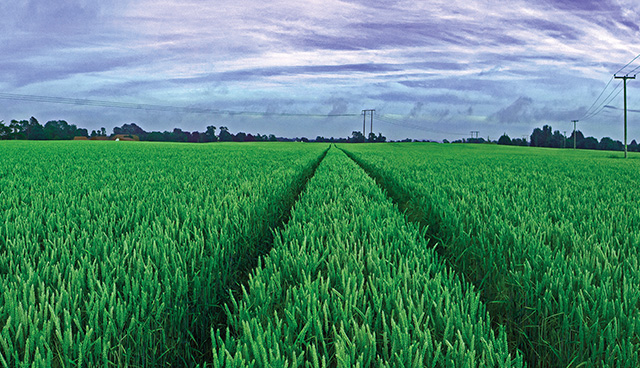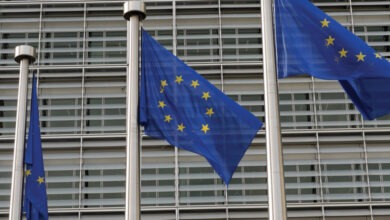Land mobility programmes offer new opportunities for young farmers


Securing long-term access to land is one of the main challenges now facing those farmers throughout Ireland who want to increase their productivity. As a consequence, there is now a growing consensus that the actual use of land is becoming more of an issue than ownership, per se.
In turn, this has spurned Ireland’s two leading young farmer representative organisations – Macra na Feirme (Macra) and the Young Farmers Clubs of Ulster (YFCU) – in to action as determined steps are made to tackle the challenge that is ‘land mobility’.
While there is an active land rental market across the island, the majority of these agreements are based on short-term conacre lettings. In contrast, long-term leasing has a number of advantages over the conacre system, from a sustainable land use perspective. However, revenue and tax-related criteria have, up to this point, favoured the conacre option. This is particularly the case from a land owner’s perspective.
Meanwhile, the age profile of Irish farmers continues to increase. It is recognised that there are many social and economic reasons why succession management is a challenge for land owners.
A significant investment has been made by the authorities throughout Ireland to improve the education and training opportunities available to young people wishing to follow a career path within the various agricultural sectors.
The one downside to it all, however, is the lack of opportunity that currently exists for young people to become active in production agriculture. Current land prices make the option of purchasing farms an absolute non-starter.
Given this backdrop, assisting succession and the transfer of farms has been a central tenet of agri-taxation policy in the Republic of Ireland for the last number of years. Older farmers can now access specific tax incentives, introduced courtesy of the 2016 Irish Budget, which encourage the long term-letting of their lands. Also, there is some prospect of this stance being replicated north of the border in the very near future. A possible way forward in this regard would be for HM Revenue and Customs to declare Northern Ireland as a test region for new taxation incentives, designed to encourage greater land mobility uptake.
These developments are giving further impetus to the work now ongoing amongst the ranks of Macra na Feirme and YFCU members.
A survey carried out by the YFCU in 2016 confirmed that almost half (48 per cent) of farm businesses contacted had not identified a farming successor, with one-in-five saying they had ‘no good reason’ for doing so.
Of those surveyed who had not identified a successor, 61 per cent had not sought advice or information. However, over half (53 per cent) said they would be interested in a succession/inheritance planning advisory service.
The proportion of farmers in Northern Ireland over 55-years-old increased from 52 per cent in 1993 to 59 per cent in 2013. Over the same period, the percentage under 44 years of age fell from 26 per cent to 17 per cent.
The potential for growth within Irish agriculture will only be fully realised if every available acre is farmed efficiently and sustainably, according to John McCallister, the man in charge of Northern Ireland’s new Land Mobility Programme.
“Age imbalance is compunded by the fact that many older farmers do not have a farming successor.”
“Land mobility has always been an issue. Only 6 per cent of farmers are under 35 years of age while 26 per cent are over 65,” he says.
“This age imbalance is compounded by the fact that many older farmers do not have a farming successor. Collaborative arrangements can be the key to delivering growth within our farming sectors while also addressing the age imbalance.
“The new service will facilitate various collaborative arrangements between farmers tailored to suit their specific farming situation, including farm partnerships, shared farming and long-term leasing.”
The new programme will run through until the autumn of 2019 and McCallister believes “it will genuinely break new ground”.
“All of the initial signs, regarding the future success of the project are extremely positive. Within the space of a few weeks, I have already received 130 enquiries from both landowners and those wishing to develop a career in production agriculture.
“Of even more significance is the fact that, of those seeking to use the service, there is an almost 50:50 split between well-established farmers wishing to look at new land management options and those wanting to develop new career opportunities within agriculture.”
McCallister confirms that his role will be to bring the various parties together and then to look at the various collaborative farming options that are possible.
“This will not be a one-cap-fits-all approach. Every business relationship will be different. A way forward that fits one pairing may not be the solution that suits others and I fully recognised this dynamic from the outset.
“The reality is that large acreages of land in Northern Ireland are not meeting their production potential.”
“Trust is also important when it comes to the development of a successful business relationship and this takes time to grow. So, we are looking a slow burn approach, when it comes to the development of the Land Mobility Programme, in that general sense.”
McCallister outlines the success of the land mobility model in other regions: “This is already the case in the Republic of Ireland, courtesy of the programme developed by Macra na Feirme and I see no reason why it is not possible to replicate what has been done in that part of the world here in Northern Ireland.”
Over the coming months McCallister will be specifically responsible for creating a database of interested older and younger farmers that can help lead to the development of appropriate ‘shared farming’ opportunities.
The service will outline available options and will develop an agreement based on personal priorities and circumstances.
“Share farming, in that formal context, is only one of the options that can be considered, in the context of the land mobility service,” says McCallister. “The scheme itself will be very flexible in nature. The reality is that large acreages of land in Northern Ireland are not meeting their production potential. The conacre system is partly to blame for this, as it gives the person renting the ground no long-term security.
“Land leasing, based on agreements lasting up to five or 10 years, is one way around this problem and the land mobility service can make this happen.”
McCallister concludes: “We also need to see changes to the tax system, which would encourage land owners to actively engage in leasing arrangements. This has already happened in the Republic of Ireland and the impact this is having, in terms of facilitating young people’s entry into production agriculture, is tangible.”
The land mobility programme launched in Northern Ireland follows-on from a similar initiative launched by Macra south of the border. It was developed courtesy of a two-year pilot project.
Since then the service has facilitated 282 arrangements resulting in approximately 25,000 acres being farmed by younger trained farmers in collaborative arrangements.
Commenting on the findings of the pilot programme report, former Macra National President Sean Finan said that the service has expanded year-on-year.
He adds: “Land mobility continues to be a serious issue in Ireland. According to a 2012 Macra land mobility and succession report, one quarter of Irish farmers are over the age of 65 and almost half of all full-time farmers have no identified successor.
“Our land programme aims to reduce that figure and combat the massive generational renewal issue Ireland is facing.
“The land mobility service is developing arrangements and opportunities which enable young farmers to access land more easily and take the next steps in their farming careers through economically sustainable collaborative arrangements.”
“It also ensures that older farmers retain ownership of their land while they also see it farmed to its full potential by getting involved with an enthusiastic, energetic, educated young farmer in a collaborative arrangement.”
While Irish agriculture strives to put working land mobility and farm succession programmes in place, the story from the UK is of an industry that already makes use of long-term land leasing opportunities.
According to Oliver Hall, a land mobility specialist with Leicestershire-based Andersons Consulting, greater emphasis is now being placed on joint venture arrangements, involving land owners and young people.
“This is particularly so with the dairy industry,” he says. “The monthly milk cheque provides a regular income source, which makes business planning relatively straightforward.
“The sector has been very exposed to the tremendous level of volatility that has characterised world milk markets over recent years. However, it is still possible to project a reasonably accurate forecast for the sector over a sustained period of time.”
Hall explains that most joint ventures are based on agreements that last for a minimum of five years. What’s more, they represent viable options when it comes to young producers securing a worthwhile career within agriculture.
He says: “Their relevance and potential sustainability is reflected in the fact that most banks will now actively consider lending money to those involved, provided the business plan is right. At the heart of each agreement is a strong element of trust between the parties involved.”
Hall confirms that several business models can be looked at, where the development of joint ventures is concerned. These include contract farming arrangements, share farming through to the development of full-blown partnerships and companies limited by guarantee.
“In each case a formal agreement will be required, which will take account of labour, return on capital and land. It’s also important to have an exit strategy included, in the case of death or changing personal circumstances.”
He adds: “Driving each agreement is a mutual understanding of the vision for the business moving forward. However, joint ventures work best when a mix of skills and experiences are brought to the table. Young farmers starting out in their careers will have lots of energy. However, an older partner will bring to bear the experience that knits the entire project together.”
Hall also explains that a professional approach to any joint venture must be displayed at all times: “Time must be set aside on a weekly or monthly business for those involved to review the work that has been undertaken and to agree future action points.
“Young people seeking to enter a joint venture with an older landowner must bring some capital to the proposed business. I would strongly urge young farmers seeking to go down the road of a joint venture as they advance their careers to save from as early an age as possible.
“Participants in any joint venture must have a positive credit rating. Those young people involved must also have an entrepreneurial spirit. They must be committed to recognising the opportunities for growth and adding-value that exist within every business.
“Putting in place sound business principles is also crucially important. Seeking optimal performance ‘holy grail’ of production agriculture. Also, knowing all the costs associated with the business.”








